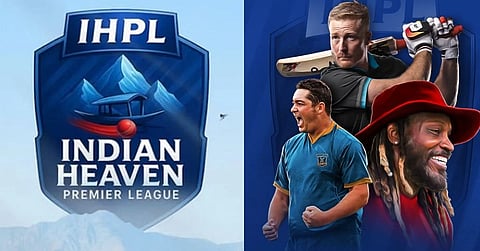

A professional T20 cricket league in Kashmir, featuring international stars, local heroes, and the thrill of world-class competition unfolding in the Valley, was too good to be true. The Indian Heaven Premier League (IHPL) was launched with fanfare, carrying the hope that it would spotlight Kashmir’s talent and tourism on the world stage.
That hope now stands in tatters. What began with fireworks and celebrity endorsements has ended in controversy, unpaid dues, and allegations of fraud. For a region yearning to reclaim its sporting identity, the IHPL collapse is a scandal that demonstrates how lofty ambitions crumble when detached from integrity and oversight.
A Dream Turns into Nightmare
The IHPL, promoted by the Yuva Society, was announced with promises of eight franchise teams, international players like Chris Gayle and Praveen Kumar, and a newly refurbished Bakshi Stadium as the home of Kashmir’s own league.
The marketing was flawless with slick posters, social media buzz, and the emotional appeal of Kashmir rising through sport. For a region long deprived of major sporting events, it ignited unprecedented enthusiasm.
But as the tournament progressed, the glitter peeled away to reveal the cracks beneath. Payments to players, vendors, and hotels were delayed or withheld. Match officials complained of being stranded. Reports emerged of players confined to hotels over unpaid bills. Within weeks, the “Heaven” in IHPL had turned into a nightmare.
Institutional Silence
Perhaps the most damning aspect of this fiasco is institutional silence. The league had no official sanction from either the Board of Control for Cricket in India (BCCI) or the Jammu and Kashmir Cricket Association (JKCA). It was an entirely private venture, conducted without the regulatory framework or financial safeguards that legitimate leagues demand.
How then was such a large-scale event allowed to proceed without even basic verification of credentials or funding sources? The event involved using public stadiums, government security, and infrastructure, and the IHPL had access to all of this. The failure to vet IHPL’s legitimacy before granting access to public facilities exposes systemic loopholes that opportunists can easily exploit. The recklessness of the organisers was matched by the negligence of oversight authorities.
While the organisers of IHPL must face the full weight of the law, the episode also reflects a collective failure. Authorities who approved the use of stadiums without verification, local administrators who endorsed the event, and even media outlets that amplified the hype without scrutiny all share a measure of responsibility.
The Fallout
Young Kashmiri players who saw the league as a once-in-a-lifetime chance to share a pitch with international stars are now left unpaid and demoralised. Local hotels, vendors, and service providers have been saddled with heavy losses. Some claim unpaid dues amounting to several lakhs. Spectators who bought tickets and merchandise have been denied refunds.
What was supposed to project Kashmir as a new hub for sports and tourism has instead dented its credibility.
The IHPL episode must not be dismissed as an isolated scam. It is symptomatic of the unchecked proliferation of privately-run leagues that operate without clear legal or ethical standards. Across India, private entities are discovering the glamour and profit potential of sports. But in this enthusiasm for returns, ethics are lost due to lack of enforceable national and state-level regulations for the private sporting leagues.
The Way Forward
Instead of allowing dubious private leagues to fill the vacuum, authorities should proactively support authentic local tournaments. Kashmir’s young cricketers deserve genuine opportunities through credible, transparent platforms backed by the JKCA and BCCI.
Public-private partnerships, if conducted ethically, can still make the Valley a sports hub. But for this, there must be enforceable national and state-level regulations for all private sporting leagues, mandating official sanction from recognised governing bodies, financial guarantees to protect players and vendors, transparent ownership and sponsorship details, mandatory disclosure of player contracts and payments, and penal provisions for defaulting organisers.
As investigations proceed and the guilty are held accountable in the recent scam, the larger goal must be reform and building a transparent sporting ecosystem that protects players, respects fans, and honours the spirit of the game.
Have you liked the news article?